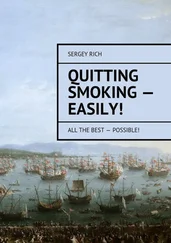It is foolish to speculate about the future of anything as precarious as the vocation of poetry — an eminent critic said some years ago that the technique of verse was a dying one, but Joyce may have persuaded him to change his mind — but to think of the future is as inevitable as it is dubious. Joyce’s last book suggests certain tentative formulations about the future of the writing of poetry. It suggests that there can be no turning back, unless civilization itself declines as it did when the Roman Empire fell. Yet it is also clear that poets cannot go forward in a straight line from the point at which Finnegans Wake concluded. What they can do is not evident in the least, apart from the fact that a literal imitation or extension of Joyce would be as mechanical as it is undesirable: too much in the very nature of his work depends upon personal and idiosyncratic traits of the author, his training as a Jesuit, his love of operatic music, the personal pride which was involved in his departure from Ireland and the infatuation with everything Irish which obsessed him in this as in his other books. There are other important elements in Joyce’s work and in his life which do lead, I think, to some tentative generalization about the future of poetry and the vocation of the poet. One of them was pointed out to me by Meyer Schapiro (who has influenced me in much of what I have said throughout): the question has been raised as to why Joyce, both in Ulysses and in Finnegans Wake, identified himself with Jews, with Leopold Bloom, an Irish Jew, and with the character of Shem in his last book (Shem is, among other of his very many kinships, a son of Noah, and he is compared with Jesus Christ, to the ironic denigration of both beings). The answer to the question of Joyce’s identification with Jews, Schapiro said, is that the Jew is at once alienated and indestructible, he is an exile from his own country and an exile even from himself, yet he survives the annihilating fury of history. In the unpredictable and fearful future that awaits civilization, the poet must be prepared to be alienated and indestructible. He must dedicate himself to poetry, although no one else seems likely to read what he writes; and he must be indestructible as a poet until he is destroyed as a human being. In the modern world, poetry is alienated; it will remain indestructible as long as the faith and love of each poet in his vocation survives.
1. Joyce’s two best works, Ulysses and his last book, are not poems in the ordinary sense of the word; and he wrote several volumes of poetry, most of which consist of verses far inferior to anything in his major books. But any view of poetry which excludes Finnegans Wake as a poem and Joyce as a poet merely suggests the likelihood that Joyce transformed and extended the limits of poetry by the writing of his last book. If we freeze our categories and our definitions, (and this is especially true in literature) the result is that we disable and blind our minds.
*
from T. S. ELIOT: A CRITICAL STUDY
Editor’s note
In the early 1940s, Delmore Schwartz signed a contract with James Laughlin — accompanied by the largest advance New Directions had yet paid — for a volume in Laughlin’s Masters of Modern Literature series of critical books devoted each to a single author. Schwartz chose T. S. Eliot as his subject. This was a busy and difficult time in Schwartz’s life, following the publication and resulting fame of his first book, when he was filled with ambition and energy, but he was also desperate for money, teaching uncertainly at Harvard, advising Laughlin on manuscripts for ND, and struggling with his marriage to Gertrude Buckman. Gertrude was working in an administrative capacity for New Directions, and the press’s offices were partially housed for a time in Schwartz’s Boston apartment.
In the correspondence between Schwartz and Laughlin, the Eliot book is mostly discussed in terms of money and the fulfillment of contractual obligations as Schwartz tried to goad Laughlin into freeing him to publish a novel with a bigger, more lucrative publisher — the abiding affection between the two men was often challenged by these kinds of exchanges, though they always, until near the end of Schwartz’s life, found a way back to friendship. The book became a low priority for Laughlin, and Schwartz’s energy and concentration eventually drifted elsewhere, mostly toward his sprawling and failed epic, Genesis .
But Schwartz idolized Eliot above almost all other authors, finding in him a model of the poet/critic/dramatist/editor and literature-altering figure he hoped to be. This necessarily resulted in ambivalence surrounding Eliot’s work and person — Schwartz felt mastered by Eliot, and also hoped to master him to become a great man himself.
Schwartz’s ambivalence, his frantic personality, and money difficulties made the Eliot book a near-impossible task. It was never finished, though Schwartz made many attempts, and it now survives in four disorganized folders in the Schwartz archive at Yale.
These folders contain several drafts of an introduction to the book, along with an aborted attempt at an entertaining anecdotal justification for writing the book and for Schwartz’s literary activities in general. This is the first time these pages have appeared in print. Also in the folders are many drafts of chapters on Eliot’s individual works—“Ash Wednesday,” “The Four Quartets”—as well as aspects of his style and innovations, with titles such as “Separation as A Subject” and “Manners and Morals as A Subject,” plus essays on Eliot’s dramatic works, criticism, and influence. There is even a complex attempt at understanding and almost forgiving Eliot’s anti-semitism.
Schwartz wanted to portray Eliot as the exemplary modern poet, the writer who actually brought on a new sense of the industrial world. Alas, he could not make it cohere. Nor could he even decide on a final form for the book, as various drafts indicate more or less formal and personal attempts at an overall scheme. A scholar might piece together a serviceable book from these folders, but it would probably offer little that other critics haven’t since said better.
What is most useful to readers now is the chance this writing offers to better understand Schwartz the thinker and critic and literary fan. In the pages that follow, we see a young poet grappling with the overpowering influence of his chosen master, layering his personal philosophy and sensibility into his reading of Eliot, who offered, Schwartz insisted, a new “sense of the actual.” Schwartz was increasingly tormented by his own shifting sense of actuality; what follows is one of his attempts at describing what seemed most true to him: literature.
THE REASON FOR WRITING THIS BOOK
In 1937, I lived in a rooming house near Washington Square. Because I read late at night and because it was difficult for me to fall asleep, I slept every morning until noon. I wrote all afternoon and then in the evening I went to the pictures, often walking the two miles to Times Square in order to do so, and going through the dark garment district of that part of the city until I came to the crowds moving about under the garish brilliance of Broadway. After the picture was over and I had left the theatre with my customary sense of guilt at the waste of an evening, I returned to the room where I lived with my brother and for the first time during the whole day enjoyed a genuine human relationship. All that I had done in that respect during the earlier part of the day was to tell the waitress behind the counter what I wanted for lunch and communicate in like terms with the waiter in a restaurant when I had my dinner. But when I came back from the movie, my brother was usually there and in bed, reading a tabloid. He had read my mail, which usually concerned literary matters, and we discussed these letters briefly. Then he began each night to tell me what had happened during the day at the office where he worked, a business concern which marketed artificial flowers and made a good deal of money, but not enough, it seemed, to keep the four brothers and their brother-in-law who owned the business on good terms with each other. [I would try with all the will in me to listen to my brother’s stories, but they scarcely ever interested me very much, and so I would soon find myself turning the pages of my brother’s tabloid while he continued to talk, wholly unaware of my lack of interest. Then he went to sleep usually, unless he had found some novel among my new books which interested him, and I sighed to think how far apart we were, although we had been in the same house and slept in the same bedroom almost always from the day he had been born.] 1These thoughts preoccupied me for a few moments, and then I would begin to read, placing four or five books beside my bed because I never could bring myself to believe that any one book would interest me sufficiently.
Читать дальше












